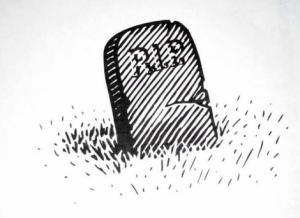The Word tells us to be holy as God is holy, so how is that possible?
Holy, Holy, Holy
Perhaps one of the greatest attributes of God, if not “the” greatest attribute of God, is that He is holy. When Jews wanted to emphasize something, they would often repeat it, much in the same way that God often repeated a person’s name twice, but this repeating of the person’s name was an indication of a close, personal relationship. Jesus would say “Peter, Peter,” and later, “Saul, Saul.” In the past, God said “Moses, Moses,” or “Abraham, Abraham,” so importance or emphasis was often the purpose of repeating something or someone’s name, so what are we to make of Isaiah seeing the Lord on His throne, while the seraphim’s proclaim, “Holy, Holy, Holy is the Lord of hosts; the whole earth is full of his glory” (Isaiah 6:3)! Here it is stated that God is not just “Holy, or “Holy, Holy,” but “Holy, Holy, Holy.” Repeating something three times is the greatest emphasis that could be given in Jewish literature, and as great of an emphasis as there is in the Bible, and it is reserved for God alone. God is so holy that it is beyond human comprehension, so how can we be holy as God is holy? Isn’t that asking the impossible?
False Converts
There will be many people that will be before Christ on Judgment Day, but many will hear the most shocking thing of their life. Jesus said of that Day, “Not everyone who says to me, ‘Lord, Lord,’ will enter the kingdom of heaven, but the one who does the will of my Father who is in heaven” (Matt 7:21), so doing God’s will is more important than saying, “Lord, Lord,” which again, repeating a name indicates a personal relationship, but they don’t really have one with Christ. They think they know the Lord, but Jesus doesn’t know them, and that has tragic consequences. The Lord said that “many will say to me, ‘Lord, Lord, did we not prophesy in your name, and cast out demons in your name, and do many mighty works in your name” (Matt 7:22)? They thought they were doing things for Christ, but not actually doing the things He specifically commanded (i.e. Matt 25:35-36). They emphasized works and “doing” instead of the finished work of Christ, and as a result, Jesus says that “I declare to them, ‘I never knew you; depart from me, you workers of lawlessness” (Matt 7:23). It does not matter to Jesus if you say you know Him. What is of eternal importance is that He knows you. They relied on their works to be saved (Eph 2:10), instead of Christ to save them by grace alone. There are “many” who think they have this relationship with Christ (“Lord, Lord”) but these same many, not a few, will be turned away from the kingdom for all time.
You Be Holy
The Bible calls us to be holy as God is holy, but God wouldn’t command us to do something if it were not possible, so it must be possible to become holy before God, or at least, in His sight. The Apostle Peter commanded us to be “like the Holy One who called you, be holy yourselves also in all your behavior” (1 Pet 1:15). He could have been quoting Leviticus 11:44-45, or Leviticus 19:2, or even Leviticus 20:7, but his point is well taken: “You shall be holy, for I am holy” (1 Pet 1:16), so how do we do that or how do we become holy? Is it even possible that fallen, sinful creatures can become holy? To answer this question, we must look to Jesus. The Apostle Paul tells us that it was “For our sake he [God] made him [Jesus] to be sin who knew no sin, so that in him we might become the righteousness of God” (2 Cor 5:21). Notice that it wasn’t for our sakes that He made us to be sinless, but rather, it was for Jesus’ sake. It was because of Him “who knew no sin” that Jesus became sin for us. This was the only way that “we might become the righteousness of Christ,” and being seen as having Jesus’ very own righteousness. Only then can we enter the kingdom. For everyone that has received the righteousness of Christ, they are not the same because, “if anyone is in Christ, he is a new creation. The old has passed away; behold, the new has come” (2 Cor 5:17).
Old Nature
 Our old, sinful nature doesn’t just disappear overnight or on the day we’re saved, but rather, the new creation in Christ and our old nature battle it out. After we receive a new nature as a child of God, the old still likes to come knocking at our door and make himself at home. It’s a battle that we will all fight, all the way to the grave. The new creation in Christ is enough to take us into the kingdom, even though the old nature tugs at our sleeve and still whispers in our ear, “Do this.” Paul wrote, “For I do not do the good I want, but the evil I do not want is what I keep on doing” (Rom 7:19). Sound familiar? Paul was a new creation in Christ (2 Cor 5:17), but the old kept being resurrected, time and again, until in desperation, Paul cried out, “Wretched man that I am! Who will deliver me from this body of death” (Rom 7:24)? I bet you know Paul’s answer. It comes next in Romans 7:25 where Paul gives us all hope. He answers his own question with, “Thanks be to God through Jesus Christ our Lord! So then, I myself serve the law of God with my mind, but with my flesh I serve the law of sin” (Rom 7:25).
Our old, sinful nature doesn’t just disappear overnight or on the day we’re saved, but rather, the new creation in Christ and our old nature battle it out. After we receive a new nature as a child of God, the old still likes to come knocking at our door and make himself at home. It’s a battle that we will all fight, all the way to the grave. The new creation in Christ is enough to take us into the kingdom, even though the old nature tugs at our sleeve and still whispers in our ear, “Do this.” Paul wrote, “For I do not do the good I want, but the evil I do not want is what I keep on doing” (Rom 7:19). Sound familiar? Paul was a new creation in Christ (2 Cor 5:17), but the old kept being resurrected, time and again, until in desperation, Paul cried out, “Wretched man that I am! Who will deliver me from this body of death” (Rom 7:24)? I bet you know Paul’s answer. It comes next in Romans 7:25 where Paul gives us all hope. He answers his own question with, “Thanks be to God through Jesus Christ our Lord! So then, I myself serve the law of God with my mind, but with my flesh I serve the law of sin” (Rom 7:25).
Conclusion
To be holy as God is holy we must repent of our sins and put our trust in Christ. Once that happens, we become new creations in Christ and our nature is changed. We now desire to live holier lives and to avoid those things we used to do before we were saved. Now, we might fall into sin, but it’s not like it was before where we’d dive into sin and drink up the waters. Today we still sin but we don’t keep on sinning because the Holy Spirit convicts of us our sins and we confess them to God and repent of them. The new creation confesses and repents, whereas the old man even denied there is such a thing as sin, but the one who admits they’re a sinner and confesses their sins before God will be like the tax collector who came to God and was saved. Jesu said of him, “I tell you, this man went down to his house justified, rather than the other” (Luke 18:14a). The Pharisee tried to justify himself by his works. That’s bad news because we’ve already seen the results of bringing works to Christ to show we’re saved (Matt 7:21-23). The saved are not saved by works, but the saved will do works because they’re saved. The lost do works believing that will save them, but their works will be the thing that condemns them as “they were judged, each one of them, according to what they had done” (Rev 20:13). We must trust in the finished work of Christ. If you think you’re a good person, or you trust in your own “goodness” or works, then “the second death, the lake of fire” (Rev 20:14) is your final destination. I pray you repent of that and trust in Christ today, while the present day of salvation is still here (2 Cor 6:2). Tomorrow it may not be. In fact, tomorrow, “you” may even not be (Heb 9:27).
Article by Jack Wellman
Jack Wellman is Pastor of the Mulvane Brethren Church in Mulvane Kansas. Jack is a writer at Christian Quotes and also the Senior Writer at What Christians Want To Know whose mission is to equip, encourage, and energize Christians and to address questions about the believer’s daily walk with God and the Bible. You can follow Jack on Google Plus or check out his book Teaching Children the Gospel available on Amazon.











